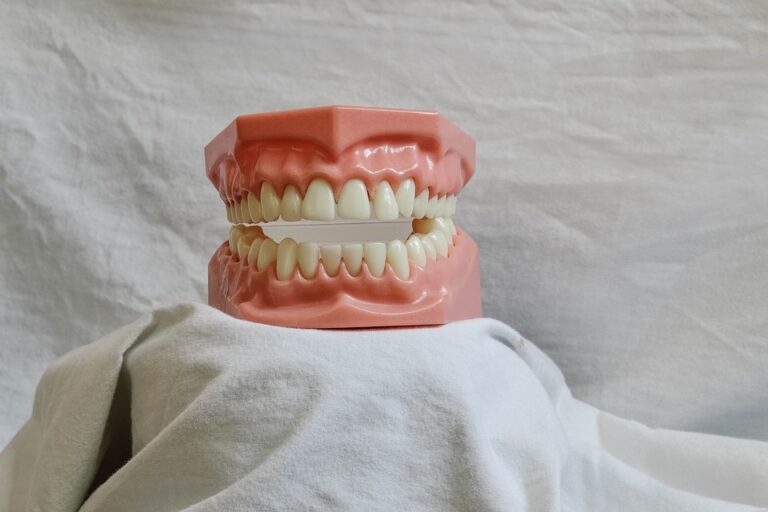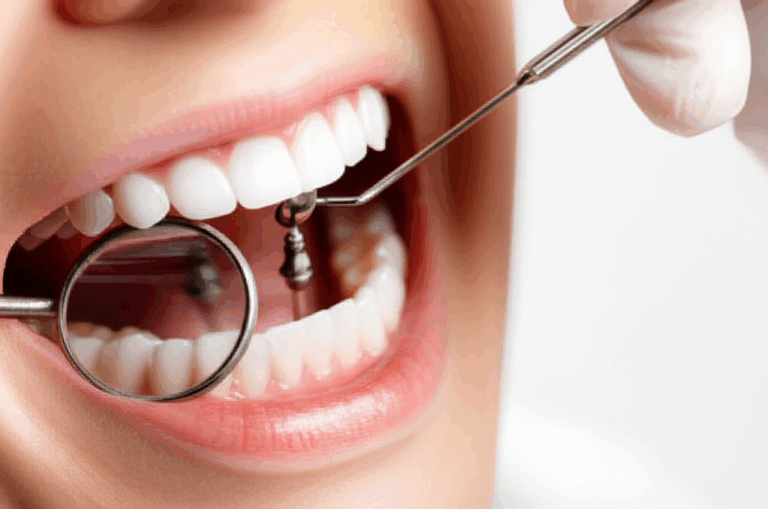
How to Get Help with Dental Implants: Your Guide to Affordable Options & Financial Aid
Do you need dental implants but worry about how to afford them? You aren’t alone. Dental implants can give you a confident smile, let you eat your favorite foods again, and help you feel better every day. But the high cost keeps a lot of people from getting the care they need. In this article, I’ll show you all the ways you can get help, save money, and even find programs or charities who can give you support. If you want a new smile but think it’s out of reach, keep reading. By the end, you’ll know exactly where to go for dental implant help, so you can get back to living—and smiling—your best life.
Table of Contents
Why Are Dental Implants So Expensive?
Dental implants are not just another dental fix—they’re like a small miracle for people with missing teeth. But why do they cost so much?
First, each implant has a metal “root,” a made-for-you tooth cap, and sometimes extra steps like bone grafting or a sinus lift. These parts aren’t just pulled out of a box. It’s kind of like fixing up an old house. If you just paint, it’s cheap. If you fix the walls, roof, and wiring, it costs more.
Dentists who put in implants, called oral surgeons and prosthodontists, get lots of extra training. They use fancy machines like cone-beam computed tomography (CBCT) to put the implant in just the right spot. It’s safe, but not cheap.
The American Dental Association (ADA) says a single dental implant usually costs $3,000 to $6,000. If you need a full row (like All-on-4® implants), it can cost $15,000 to $30,000 per row. That’s as much as a small car.
What Influences the Cost of Dental Implants?
Let’s look at what changes the price of implants. Sometimes it feels random, but it isn’t!
Things That Change the Price
- Location: Big cities usually charge more than small towns.
- Dentist’s Skill: A dentist who’s done lots of implants usually charges more than one who’s just starting.
- Materials: The best zirconia or titanium implants last longer but cost more.
- Extra Steps: If you need a bone graft or sinus lift, it means more visits and more money—sometimes $200 to $3,000 extra.
- Dental Lab Picks: The quality of the dental ceramics lab making your tooth cap matters for price too.
Here’s a guide of average prices, based on national info:
| Type of Procedure | Average Price (USD) |
|---|---|
| Single Dental Implant | $3,000 – $6,000 |
| Full Arch / All-on-4 Implants | $15,000 – $30,000 |
| Bone Grafting (per spot) | $200 – $3,000+ |
Some people need tooth pulled, x-rays, or even sedation, which can add more to your bill.
Can Dental Insurance Help Pay for Implants?
Lots of people ask this. The short answer is “Maybe… but don’t expect a lot.” Most dental insurance treats implants as “major” work. That means even good plans won’t pay the full bill.
Dental Insurance
- Most plans pay up to 50% for implants, but only up to your max—usually $1,000 to $2,000 a year.
- Other steps like the tooth cap may or may not be partly covered.
Medical Insurance
If you need implants because of an accident or health issue, medical insurance might help. This could be for a knocked-out tooth in a car crash or a jaw problem. You’ll need doctor’s proof and a talk with your insurance before starting.
Getting the Most from Your Insurance
Ask your dentist for a pre-determination—this is a form they send your insurance to see what they’ll pay before you get work done. Watch out for waiting times or rules saying what you can get covered in your first year.
What Dental Financing & Payment Plans Should You Know?
Don’t have all the money at once? Don’t worry. Lots of patients use monthly payments, loans, or special credit cards for medical bills.
Payment Plans at the Office
Some dentists let you pay over months with no extra fees. Just ask!
Financing from Other Companies
Companies like CareCredit, Wells Fargo Health Advantage, or LendingClub Patient Solutions help people pay over time.
- They work kind of like credit cards for medical use.
- Many offer 0% interest for 6–24 months if you qualify.
- They check your credit, but even people with okay credit often get approved.
Personal Loans
You can get a loan from your bank or credit union. You’ll pay interest, but the payback time is longer.
HSAs & FSAs
These are special work accounts—Health Savings Accounts or Flexible Spending Accounts—that let you use money before taxes for health or dental bills. This can save you money on taxes.
Here’s an example: Ted needed one implant, but $4,500 upfront was too much. He used CareCredit and paid monthly for 18 months. Ted got his new tooth, paid no interest, and still handled his other bills.
Are There Programs That Cut Implant Costs?
Now things get interesting. You might have more low-cost choices than you think.
Dental Schools & University Programs
Ever get a haircut at a beauty school? Dental schools offer something like that for teeth! Dental students, with teachers watching, do the work. You pay 30–70% less than at regular offices. The catch? It takes longer, and you might need to travel to a school or hospital.
To find these programs, check out big schools like NYU College of Dentistry or UCLA School of Dentistry.
Public Dental Clinics
Lots of areas have community dental clinics or Federally Qualified Health Centers (FQHCs). They use a sliding scale so if you don’t make much money, you pay less.
Could Dental Schools or Clinical Trials Work for You?
Along with schools, you can try clinical trials. Clinical trials let dental experts try out new things. If you get in, you could get free or really cheap implants.
- Check ClinicalTrials.gov.
- You’ll need to fit certain rules—age, health, sometimes where you live.
- All care is done by trained dental workers with safety rules.
It’s not for everyone, but if you want to help with research and save money, it’s worth a look.
Do Charities or Non-Profits Ever Pay for Implants?
Some charities do help people in real need.
Examples of Charities
Donated Dental Services (DDS) by the Dental Lifeline Network helps older people, those with disabilities, or people with health problems get dental help, sometimes even implants.
Groups like Give Back A Smile (GBAS) help domestic violence survivors. Smile Train and Smiles for Life help kids and people in special cases.
If you want charity help, you’ll need to show proof of low income or health need. The wait can be long and not everyone will qualify. Check for local non-profits near you too!
Community Support
Some people use crowdfunding, like GoFundMe, to get help from family, friends, and even strangers to pay for their new smile.
Are There Cheaper Alternatives to Dental Implants?
If implants are still out of reach, other options can help. They’re not exactly like real teeth, but you’ll be able to eat, talk, and smile better.
Bridges
- A dental bridge joins a new tooth to your real teeth. It costs less but might mean filing down good teeth.
- Average bridge cost: $2,000 to $5,000.
Dentures
- Partial or full dentures fix several or all missing teeth.
- Dentures are cheaper, easy to take out, and help with eating and talking.
- You’ll need to care for them, and they might feel odd or loose at first.
Ask your dentist if these ideas are right for you, or if they could work until you can get implants.
For more info on replacing teeth, you can check out removable denture lab.
How Can You Find an Affordable & Good Dentist for Implants?
Finding the right dentist is just as important as getting a good price. Here’s how to start:
Look Around
- Check online reviews or ask people you know for tips.
- Look at the dentist’s background—especially how much experience they have with implants.
Cost Estimate
Ask for a step-by-step written cost list. Don’t be shy! If the first price is too high, see another dentist for a second opinion.
Ask These Questions
- Does the price include the tooth cap and any extra work?
- What payment plans do you offer?
- Which dental labs do you use for implants?
- Can you suggest programs, dental schools, or local clinics?
Taking the Next Step Toward Your New Smile
You have choices. Don’t let one high number stop you. Begin by writing down what you need, what you can pay, and what you’d love to have. Then, follow these steps:
- Check your insurance and ask about big dental care coverage.
- Look into payment plans with your dentist, a loan company, or your bank.
- Reach out to dental schools or local clinics.
- Ask local non-profits, charities, or your city’s health office if there are any programs open right now.
- Think about bridges or dentures if you need more time to save up.
A new smile can do more than change how you look. You’ll have better health, more confidence, and feel happier. And that makes the work worth it.
FAQ: Quick Answers About Dental Implant Help
Q: Can insurance pay for my dental implants?
A: Sometimes. Most plans only help a little. Get your dentist to send in paperwork first to see what’s covered.
Q: Are dental schools safe for implants?
A: Yes! Students are closely watched by trained teachers. You can save money, but it will take more time.
Q: Can I get implants with bad credit?
A: Some credit companies work with people with not-so-great credit. Ask your dentist or look for payment plans.
Q: What’s better—bridges or dentures if I can’t afford implants?
A: Bridges are fixed and feel more like real teeth. Dentures are cheaper but take time to get used to. Ask your dentist what’s best for you.
Q: Are there ways to pay less for dental implants?
A: Yes—schools, clinics, payment help, insurance, and even crowdfunding. Try every idea I’ve shared!
Key Takeaways
- Dental implants are pricey, but there are ways to get help.
- Insurance pays a little, but rarely all.
- Payment plans and loans help you pay over time.
- Dental schools and clinics can cut costs by 30–70%.
- Charities and non-profits may pay the full cost for those who qualify.
- Community clinics and programs may be nearby—just ask around.
- Lower-cost alternatives like bridges or dentures help if you can’t get implants right now.
- Shop around and ask lots of questions.
Remember, taking care of your smile is a way to take care of yourself. Don’t give up—the help you need could be just a call or click away!








